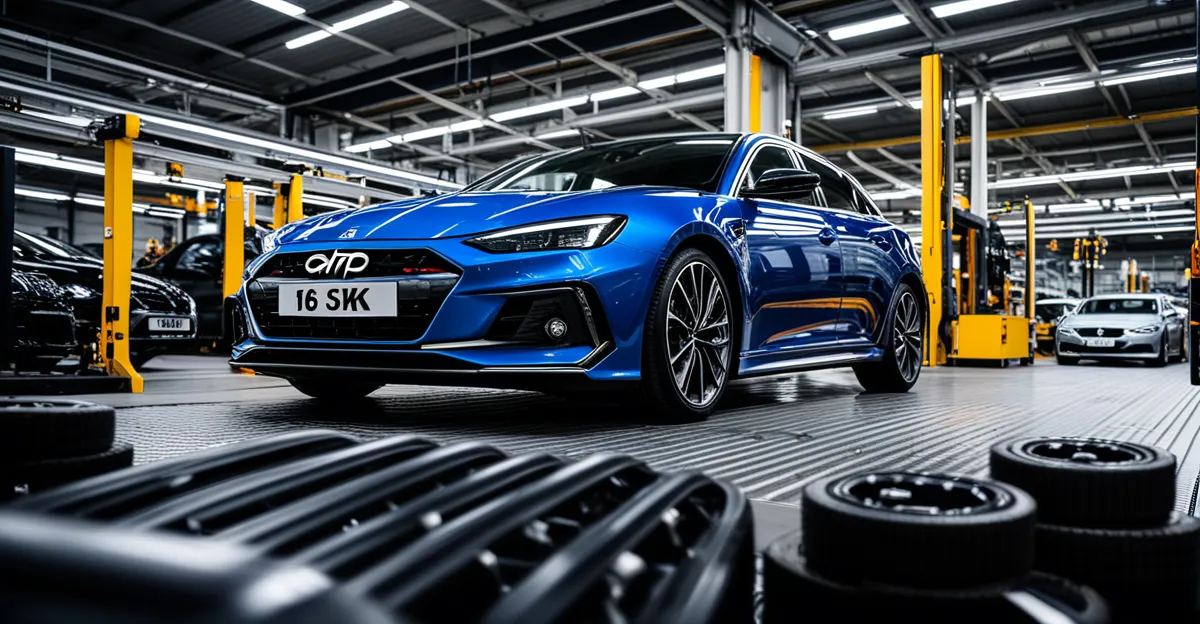Major Disruptions Impacting the UK Automotive Supply Chain
The UK automotive supply chain challenges have intensified significantly due to a combination of Brexit-related trade barriers and ongoing global disruptions. Since Brexit, the introduction of new customs procedures and regulatory changes has complicated cross-border flows. These integrations, such as additional checks and paperwork, have increased delays and compliance costs for manufacturers and suppliers alike.
Simultaneously, global supply chain disruptions—notably semiconductor shortages—have severely constrained production capacities. Semiconductors are vital components across all modern automotive systems, and the scarcity has forced assembly lines to halt or slow down. Logistics providers face bottlenecks as demand fluctuates and shipping routes experience delays from pandemic-related upheavals and geopolitical tensions.
Additional reading : How Will Electric Vehicles Change the Future of the UK Automotive Industry?
The combined effect of these factors impacts every stakeholder. Automotive manufacturers wrestle with inconsistent component availability, while suppliers confront heightened demand uncertainty and increased inventory costs. Logistics providers, critical in maintaining flow, deal with capacity shortages and elevated transit times. Overall, this volatile environment requires agility and proactive risk management to navigate the complex UK automotive supply chain challenges effectively.
Labour Shortages and Skills Gap in the Automotive Sector
The UK labour shortages in the automotive sector have become increasingly acute following Brexit and the COVID-19 pandemic. These workforce challenges stem from reduced migration flows and heightened competition for skilled workers. The resulting shortfall affects not only assembly line staff but also technicians, engineers, and management roles essential for seamless production.
Also to see : How is the UK automotive sector enhancing supply chain efficiency?
How does the automotive industry skills gap impact production? The skills gap limits manufacturers’ ability to maintain consistent output, leading to delays and increased error rates. New technology adoption, such as automation and electrification, demands further upskilling, but addressing these needs takes time and resources. This mismatch between available skills and job requirements hampers innovation and slows the pace of modernization across the supply chain.
Recruitment difficulties have surged in recent years, with vacancies remaining unfilled longer than before. Training programs lag behind evolving industry demands, creating a persistent gap in capability. This workforce challenge forces companies to invest more in retention and development, though progress is uneven. To effectively tackle these issues, coordination between industry bodies, educational institutions, and government initiatives is critical, as it can enhance skill pipelines and reduce the impact of labour shortages on the UK automotive supply chain challenges.
Rising Costs and Economic Pressures
The UK automotive supply chain is grappling with escalating automotive supply chain costs driven by sharp increases in the prices of raw materials and essential components. Steel, aluminum, and rare earth metals, foundational to vehicle production, have experienced significant price surges globally, which directly impact manufacturers’ cost bases. Inflation compounds these effects, pushing overall operational expenses higher and squeezing profit margins.
Energy price volatility further burdens the sector. Fluctuating electricity and fuel costs raise manufacturing and logistics expenses, making budgeting and forecasting more challenging. Additionally, currency fluctuations post-Brexit introduce unpredictability in import and export pricing, contributing to economic pressures that ripple throughout the supply chain.
These financial strains affect the entire ecosystem. Manufacturers often face reduced profitability or must pass increased costs down the chain, influencing supplier viability. The compounded effects slow investment in innovation and modernization, as companies prioritize managing immediate cost concerns over longer-term strategic initiatives. Addressing these rising UK automotive supply chain challenges requires careful financial planning and adaptive strategies to maintain competitiveness under volatile economic conditions.
Regulatory and Environmental Compliance Demands
New automotive regulations UK impose stringent environmental compliance requirements that have intensified following Brexit. Changes include tighter emission standards, waste management protocols, and restrictions on hazardous materials. These regulations require manufacturers and suppliers to invest significantly in upgrading processes and technologies to meet complex, evolving criteria.
What are the main implications of these regulations for the supply chain? Companies face elevated costs related to certification, testing, and ongoing monitoring to ensure compliance. These expenses often cascade downstream, affecting suppliers and importers who must align with UK-specific rules distinct from EU frameworks. The complexity increases administrative burdens, delaying shipments and introducing logistical hurdles under heightened scrutiny.
Manufacturers and suppliers must also navigate uncertainties caused by shifting policy landscapes. Meeting new environmental compliance demands involves balancing investments in sustainability with cost pressures already outlined in the supply chain. Failure to comply risks penalties, trade restrictions, or damaged reputation, making proactive adaptation essential.
In summary, the combination of post-Brexit regulatory divergence and enhanced automotive regulations UK creates significant challenges. It compels stakeholders across the UK automotive supply chain to integrate compliance into operational strategies, thereby affecting cost structures, timelines, and competitive positioning in a highly dynamic market environment.
Technology Shifts and Electrification
The ongoing technology transformation towards automotive electrification profoundly alters the UK automotive supply chain challenges. As manufacturers accelerate their transition to electric vehicles (EVs), supply networks must adapt to new component requirements that differ significantly from traditional internal combustion engines. This shift demands reliable access to batteries, electric motors, and power electronics, introducing complexities that ripple through procurement, manufacturing, and logistics.
What are the barriers to adopting automotive electrification technologies? Primarily, limited infrastructure readiness slows widespread EV adoption. Charging networks remain unevenly distributed, and supply chains for critical battery materials, such as lithium and cobalt, face capacity constraints and geopolitical risks. These factors collectively raise costs and complicate planning for manufacturers and suppliers alike. Moreover, the skills gap intensifies, as workforce capabilities must evolve to design, build, and maintain sophisticated electrified systems.
Traditional suppliers experience pressure to innovate or risk obsolescence. Many established parts suppliers must pivot their offerings to accommodate EV components, which often require different manufacturing processes and quality standards. This transition challenges existing supply agreements and necessitates investment in new technologies and partnerships to remain competitive within the transforming automotive landscape.
In summary, the expansion of automotive electrification highlights vulnerabilities and opportunities across the EV supply chain challenges. Addressing infrastructure deficits, securing raw materials, and upgrading workforce skills are critical to supporting the sustainable growth of electric vehicle production in the UK.
Strategies for Resilience and Future Readiness
Building resilience within the UK automotive supply chain challenges demands proactive UK supply chain mitigation efforts. One foundational approach involves the diversification and reshoring of critical suppliers and manufacturing operations. By reducing overreliance on single-source or distant suppliers, companies can better absorb shocks from disruptions such as Brexit impacts or global supply chain disturbances. This reshoring also enhances control over quality, compliance, and lead times.
Investment in digitalization and advanced manufacturing technologies is another key strategy. Integrating real-time data analytics, artificial intelligence, and automation empowers supply chain stakeholders to forecast risks, optimize inventory, and improve responsiveness. These technologies enable more agile operations capable of adapting swiftly to fluctuations in supply or demand, an essential factor given the volatility arising from both Brexit and broader global challenges.
Collaboration across the industry, supported by government initiatives, plays a crucial role in strengthening resilience. Partnerships between manufacturers, suppliers, logistics providers, and policymakers facilitate information sharing, coordinated contingency planning, and aligned standards. Targeted government support, such as funding for workforce skills development and infrastructure enhancements, further bolsters the industry’s capacity to withstand shocks and accelerate recovery.
In summary, effective UK supply chain mitigation hinges on a multifaceted approach combining diversification, technology adoption, and cooperative frameworks. These resilience strategies equip the automotive sector to navigate existing and emerging challenges while positioning it for sustainable future growth.






